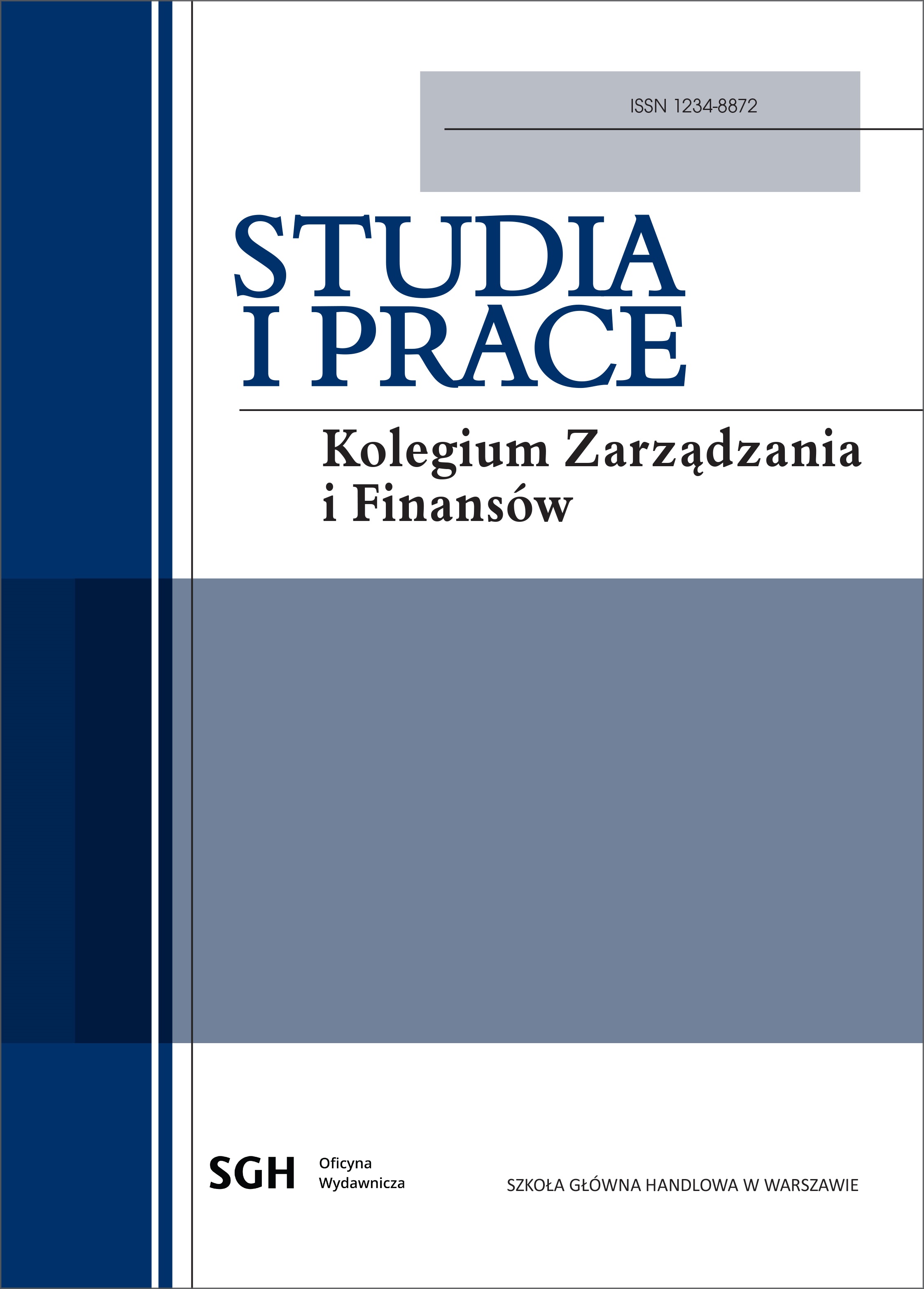Changes in the Restrictiveness of Macroprudential Regulations during the COVID-19 Pandemic. The Case of Capital Requirements for Banks in the Eurozone
DOI:
https://doi.org/10.33119/SIP.2021.182.2Keywords:
Eurozone, macroprudential policy, pandemic, capital requirements, restrictivenessAbstract
The article discusses the findings of the study that explored changes in the restrictiveness of the macroprudential policy in the euro area economies during the Covid-19 pandemic. The paper aims to show how and why the restrictiveness of macroprudential capital requirements in the Eurozone evolved between late 2019 and mid-2021. Qualitative and quantitative data analyses have shown that the relaxation of capital requirements for the banks was largely due to the fact that they managed to restore their capital and liquidity positions (higher capital adequacy ratio as a result of higher equity) rather than the lowering of a regulatory requirement. It was also demonstrated that (in principle) even when requirements for individual institutions are lowered (i.e., macroprudential policy is relaxed from the micro perspective), the overall policy in the country may, paradoxically, become more restrictive as it was the case in Portugal.
Downloads
References
1. Bernanke B. S., Lown C. S. [1991], The Credit Crunch, „Brookings Papers on Economic Activity”, 22 (2), s. 205–247.
2. Borio C., Gambacorta L. [2017], Monetary Policy and Bank Lending in a low Interest Rate Environment: Diminishing Effectiveness?, „Journal of Macroeconomics”, 54 (B), s. 217–231.
3. Casanova C., Hardy B., Onen M. [2021], COVID-19 Policy Measures to Support Bank Lending, „BIS Quarterly Review”, wrzesień, s. 45–59.
4. Catalán M., Hoffmaister A. W., Harun C. A. [2017], Bank Capital and Lending: An Extended Framework and Evidence of Nonlinearity, IMF Working Paper, no. WP/17/252.
5. Czaplicki M. [2021], Measuring the Restrictiveness of (Macro) Prudential Policy. The Case of Bank Capital Regulation in Poland, „Journal of Banking Regulation” (w publikacji).
6. Czerniak A., Czaplicki M., Mokrogulski M., Niedziółka P., Szelągowska A. [2021], Wpływ pandemii COVID-19 na sektor bankowy w Polsce i innych krajach Europy Środkowo-Wschodniej, w: Raport SGH i Forum Ekonomicznego 2021, red. A. Chłoń-Domińczak, R. Sobiecki, M. Strojny, B. Majewski, Oficyna Wydawnicza SGH, Warszawa.
7. Dicanio A., Montesi G. [2021], Banks in Time of COVID-19: Loss Absorption Capacity, Lending and Market Valuation, „Bancaria”, 2, s. 31–58.
8. Gambacorta L., Shin H. S. [2018], Why Bank Capital Matters for Monetary Policy, „Journal of Financial Intermediation”, 35 (B), s. 17–29.
9. Hancock D., Wilcox J. A. [1993], Has There Been a “Capital Crunch” in Banking? The Effects on Bank Lending of Real Estate Market Conditions and Bank Capital Shortfalls, „Journal of Housing Economics”, 3 (1), s. 31–50.
10. Hardy B. [2021], COVID-19 Bank Dividend Payout Restrictions: Effects and Trade-offs, „BIS Bulletin”, nr 38, 10 marca.
11. Heid F., Porath D., Stolz S. [2003], Does Capital Regulation Matter for Bank Behaviour? Evidence for German Savings Banks, artykuł nieopublikowany.
12. Imbierowicz B., Löffler A., Vogel U. [2021], The Transmission of Bank Capital Requirements and Monetary Policy to Bank Lending in Germany, „Review of International Economics”, 29 (1), s. 144–164.
13. Kapuściński M. [2017], The Role of Bank Balance Sheets in Monetary Policy Transmission: Evidence from Poland, „Eastern European Economics”, 55 (1), s. 50–69.
14. Kindleberger C. P., Aliber R. Z. [2011], Manias, Panics, and Crashes. A History of Financial Crises, 6th Edition, Palgrave Macmillan, Basingstoke.
15. Minsky H. P. [2008], Stabilizing an Unstable Economy, McGraw Hill, New York.
Raporty
1. Financial Stability Board [2021], Lessons Learnt from the COVID-19 Pandemic from a Financial Stability Perspective, FSB Interim Report, 13 lipca.
2. Riksbank [2020], Financial Stability Report, 11 listopada.
Materiały internetowe
1. Europejski Bank Centralny [2020], ECB Banking Supervision Provides Temporary Capital and Operational Relief in Reaction to Coronavirus, https://www.bankingsupervision.europa.eu/press/pr/date/2020/html/ssm.pr200312~43351ac3ac.en.html, dostęp: 30.09.2021.









